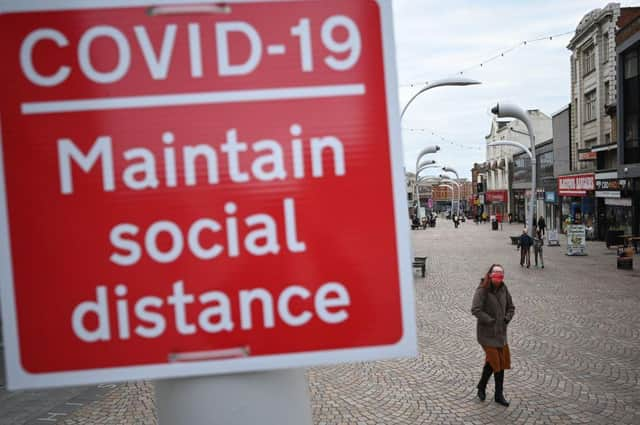Double-dip recession fears as private sector stalls


The closely-followed IHS Markit/Chartered Institute of Procurement & Supply (Cips) Flash UK Composite PMI data showed a reading of 47.4 so far this month. Anything below 50 is seen as a decline in activity. October's reading at the same point was 52.9 and 56.5 in September.
The downturn was driven by the fastest fall since May in leisure and hospitality businesses as pubs, restaurants and bars close their doors under new lockdown measures – with certain parts of Scotland now also affected.
Advertisement
Hide AdAdvertisement
Hide AdHowever, the plunges were offset by a boost in manufacturing as suppliers stockpile products ahead of the Brexit transition period ending this year.
This, in turn, is causing long delays at UK ports and price rises on products as companies scramble to be ready for the future relationship with Europe, which is still being negotiated.
Chris Williamson, chief business economist at IHS Markit, said: "A double-dip is indicated by the November survey data, with lockdown measures once again causing business activity to collapse across large swathes of the economy.
"As expected, hospitality businesses have been the hardest hit, with hotels, bars, restaurants and other consumer-facing service providers reporting the steepest downturns.
"Some comfort comes from the data suggesting that the impact of the lockdown has not been as severe as in the spring, and manufacturing has also received a significant boost from inventory building and a surge in exports ahead of the UK's departure from the EU... However, while the lockdown will be temporary, so too will this pre-Brexit boost."
Business optimism was higher for November, with companies hopeful on the various vaccine news to have emerged. But fears remain that the huge swathe of expected redundancies in the services sector will have a knock-on impact on the entire economy.
Duncan Brock, group director at Cips, said: "News of potential vaccines bringing a return to normality lifted the mood with a big rise in optimism to its highest since March 2015.
"But in the meantime with service businesses still shedding jobs at a head-spinning rate, the new year will be difficult as another recession waits on the doorstep."
A message from the Editor:
Thank you for reading this article. We're more reliant on your support than ever as the shift in consumer habits brought about by coronavirus impacts our advertisers.
If you haven't already, please consider supporting our trusted, fact-checked journalism by taking out a digital subscription.
Comments
Want to join the conversation? Please or to comment on this article.